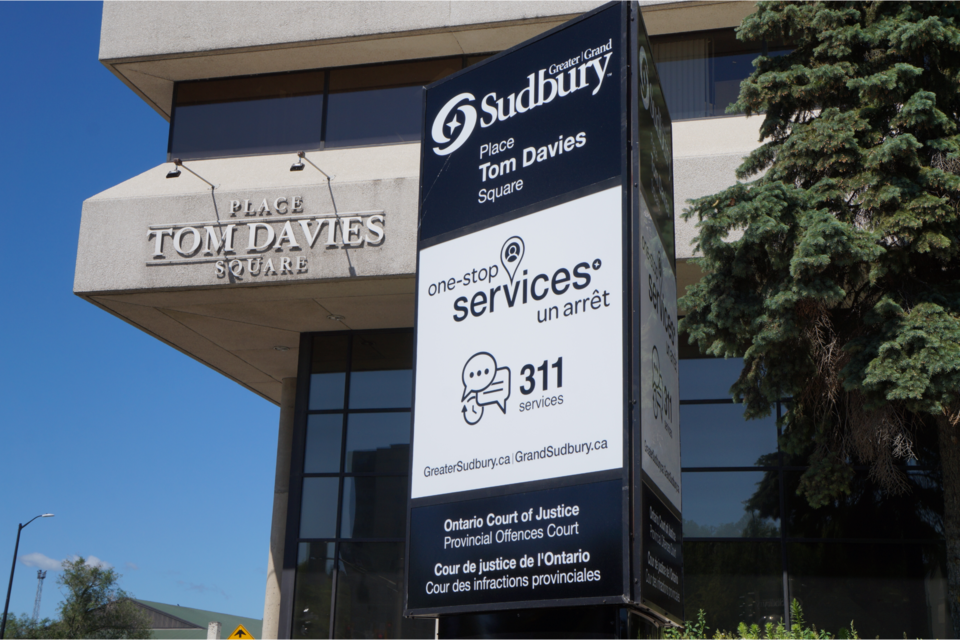SUDBURY - The pandemic-era practice of working from home is permanent for 441 City of Greater Sudbury employees, of whom 115 work remotely full-time and 326 have part-time arrangements.
This makes up approximately 13.5 per cent of the city’s workforce of 3,275, which includes 2,263 permanent full-time staff and a collection of part-timers, students and contract employees.
In the wake of a broader societal pushback against remote work, which Sudbury.com has taken note of in our online comments, we reached out to city Corporate Services general manager Kevin Fowke to clarify the city’s work-from-home arrangements.
“There’s a portion of the workforce, probably a growing portion over time, that finds this an attractive potential set of work conditions,” Fowke said of remote-work arrangements.
Very little remote work took place prior to the pandemic, he said, noting the city didn’t have a related policy at the time, with people working remotely when they were out of town or in the field.
When the pandemic hit in early 2020, many staff members were sent home without a policy in place, prompting the city to reverse-engineer their remote work policy, which was approved by that summer.
Per the policy, the 115 employees who currently work remotely on a full-time basis are expected to report to the office “when needed and as required by a supervisor,” but typically at least two days per month.
The 326 employees working remotely part-time are expected to report to the office at least once per week.
Remote work opportunities have been a “net positive overall,” Fowke said, adding that with “some level of assurance,” he’s able to affirm remote work has led to increased productivity.
In recent budget years, Greater Sudbury council has asked staff to cut millions of dollars from the base budget to pare down tax increases to what they believe are more reasonable levels. In the 2024-25 budgets, these cuts included an additional $655,000 in vacancy management (to a new total of $3 million), which is keeping staff positions temporarily vacant when members leave.
Because the city has been able to find productivity efficiencies to make this and other cuts work, Fowke said there’s evidence that remote work has been effective.
The city is now including in job advertisements whether positions are available for remote work, either full- or part-time, and Fowke noted that employees need to apply to work remotely, the criteria for which is outlined in their policy.
Although some positions are well-suited for remote work, Fowke noted that the majority of municipal positions are front-line staff unable to work remotely, such as firefighters, Pioneer Manor staff and GOVA Transit drivers.
Customer service representatives who cover the 311 help line all work remotely full-time, and Fowke said that roughly 75 per cent of the finance department work remotely either part- or full-time.
“They’re doing their work at a terminal for most of the day,” he said, adding that although staff still come in for meetings as needed, the majority of their work is done on a computer anyway.
Senior management roles are also not eligible for remote work, following the direction of Mayor Paul Lefebvre in late 2022.
At the time, Lefebvre, then newly elected, worked with city CAO Ed Archer to revoke the employment contract of city director of finance and CFO Hailey Pinksen. Recently hired, she was working remotely on a full-time basis from her home in Alberta.
“I strongly believe that the successful candidate for this role, because of its importance to our success, should be located in our community, and be part of our community,” he told local media at the time. “They should be here to share experiences with the CAO, myself, council and other staff.”
The trend toward remote work has also factored into the city’s long-term plans, including the Cultural Hub at Tom Davies Square project.
This proposed project would have the city hall building and the adjoining municipal-owned building to its immediate north reconfigured to accommodate a library/art gallery, with most municipal operations shifting to the upper floors of 199 Larch St.
With 326 employees working remotely on a part-time basis, Fowke said there’s no need to have permanent work stations for them. As such, they’re factoring communal desks into the project.
“We’re not anticipating a steep increase in employees working remotely,” Fowke said. “We’re just making provisions to use the space as best we can.”



